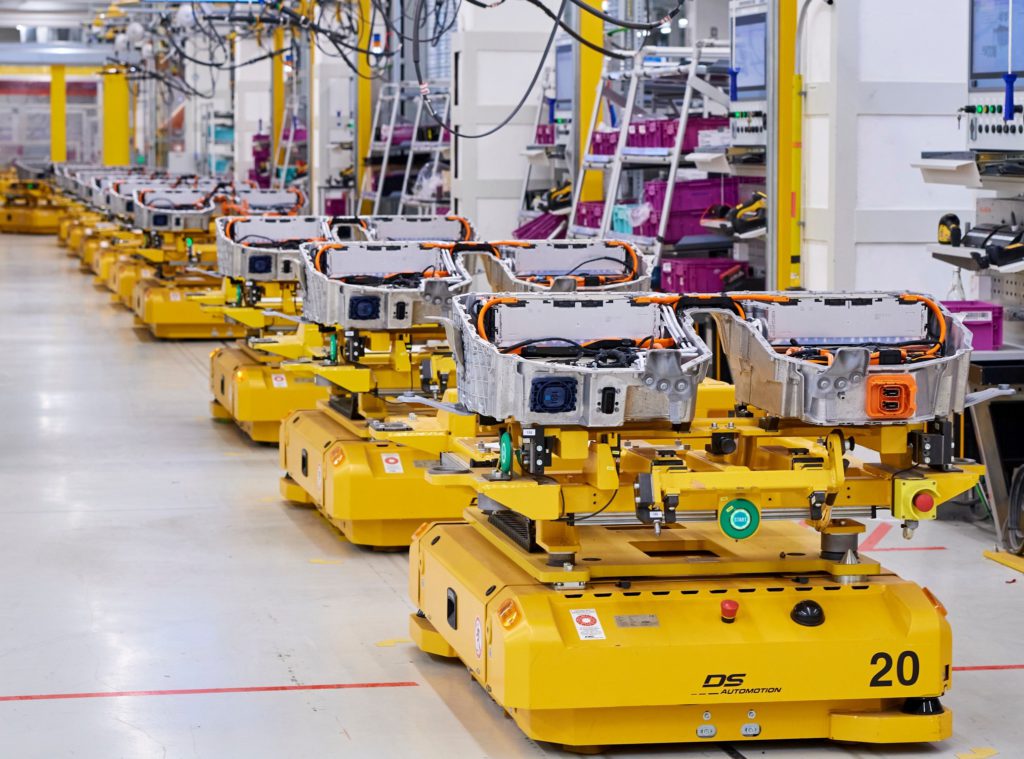BMW adds another plant to its battery manufacturing plans in Germany
27 October 2020

27 October 2020
BMW Group is expanding its Germany-based production capabilities for electric drives, as the carmaker looks to achieve ambitious targets for 2021 onwards.
The carmaker has announced that from next year, it will coat battery cells for high-voltage units at its plant in Regensburg, while complete batteries will be built from 2022. This comes as the company invests €150 million in the site in order to supply a growing number of BMW electric vehicles (EVs).
The German manufacturer announced plans to produce battery modules at its Leipzig plant in September, and the latest move highlights the carmaker’s eagerness to advance quickly its electrification capabilities, and concentrate on its own supply rather than rely on units shipped from Asia. This follows the opening of its Competence Centre for E-drive Production at Dingolfing in July.
In total, the BMW Group is investing around €750 million across its Dingolfing, Leipzig and Regensburg sites, as it expands its production capacity for EV drive components by 2022.
Growing numbers
′From 2021, BMW Group Plant Regensburg will not just produce electrified vehicles, but also e-drive components,’ said Frank Bachmann, plant director. ′We are investing over €150 million by 2022 in high-voltage battery production as well as the necessary components. A total of at least 300 future-proof jobs will be created in this new area of production until 2024.’
′This strategic decisions highlights ′just how seriously we take this issue and that the BMW Group continues to place a strong emphasis on Germany as a production location,’ added Michael Nikolaides, head of planning and production engines and e-drives. ′Therefore, the BMW Group is securing employment across its German sites and is demonstrating foresight by restructuring expertise as needed over the course of the transition to electromobility.’
Regensburg started production of the plug-in hybrid (PHEV) versions of the BMW X1 and X2 earlier this year, and begun the conversion which will allow it to respond flexibly to changing demand for different drive types. ′Battery-cell coating and high-voltage battery production will play a key role in this transition,’ said Bachmann.
The coating of battery cells will start at the beginning of 2021. Coating the cells gives them greater mechanical robustness and better thermal conductivity. This allows for improved insulation and cooling of the even more powerful battery cells for the carmaker’s fifth generation of its electric powertrains. From 2022, the Regensburg plant will also produce complete high-voltage batteries from battery modules.
Ramping up e-drive component production capacity is key to meeting the BMW Group’s ambitious electric mobility targets. In 2021, the carmaker plans for one in four vehicles sold in Europe to be fitted with an electric drive. By 2025, it aims for this figure to be one in three and one in two by 2030. By 2023, the manufacturer states it will have 25 electrified models on the road, half of which will have an all-electric drive.
Shortened supply
Currently, high-voltage batteries for BMW’s EV line-up, which includes the Mini Electric, have been produced in three in-house production facilities located in Dingolfing, Spartanburg (USA) and Shenyang (China).
By adding Leipzig and Regensburg, the carmaker is looking to centralise its battery production in Europe, where the majority of its vehicles for the European market are built. This will allow it to shorten the lead time for EV production, meaning quicker manufacturing and shipping of models. In addition, by producing batteries closer to its vehicle-manufacturing facilities, it will allow the company to reduce the costs associated with the supply chain, which could filter down into reduced vehicle costs. BMW will also have greater control over the production process, through which it can hopefully prevent battery manufacturing errors, which recently resulted in recalls.